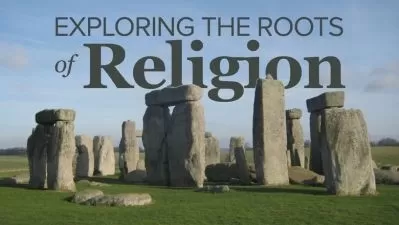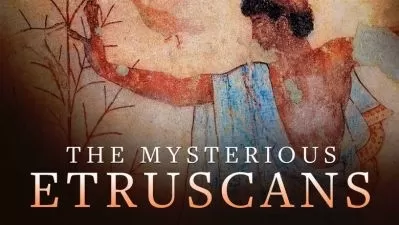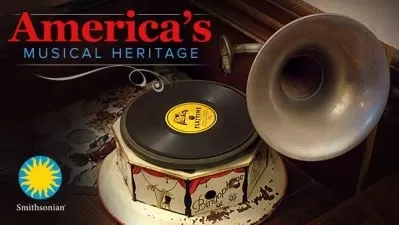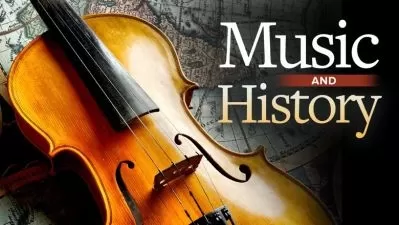The 30 Greatest Orchestral Works
Robert Greenberg
24:46:41
Description
From the majesty of Baroque and Classical era masterpieces to the daring visions of modernism, orchestral music is undoubtedly one of the supreme artistic traditions of Western culture. And, over the centuries, this amazing medium has given us a special category of works that stand apart from the rest as transcendent expressions of the human spirit.
These "greatest of the great" orchestral pieces share several compelling features:
- They have the uncanny ability to express humanity's dreams, struggles, tragedies, and triumphs in the most stunning and unforgettable terms.
- They ingeniously challenged, at the time of their creation, the traditional forms and conceptions of orchestral composition, extending both the creative resources available to composers and the expressive content of the music itself.
- They remain hallmarks of the orchestral repertoire and continue to transfix audiences, not infrequently in the face of carping by critics and musicologists.
In The 30 Greatest Orchestral Works, Great Courses favorite Professor Robert Greenberg of San Francisco Performances takes you on a sumptuous grand tour of the symphonic pieces he counts, as a highly respected composer and music historian, as being among the very greatest ever written—inviting you to an in-depth contemplation of what makes these works so memorable, and why they live at the center of our musical culture. These 30 masterworks form an essential foundation for any music collection and a focal point for understanding the orchestral medium and deepening your insight into the communicative power of music. While seasoned music lovers will find the lectures a fascinating and revealing journey through the repertoire, the course welcomes newcomers to orchestral music, offering a very accessible point of entry to this magnificent repertoire.
A Deep and Far-Ranging Exploration
In 32 richly detailed lectures, you encounter symphonies, concerti, tone poems, symphonic poems, and suites, covering over 200 years of music history and delving into the works through extensive musical excerpts. As a broad-based exploration of the literature, the course covers the major eras and stylistic periods in Western music from the early 18th to the mid-20th centuries and highlights a wide range of European and American composers. With his trademark brilliance as a lecturer, Professor Greenberg guides you in a direct and dynamic engagement with the music, opening you to the profound enjoyment and meanings of these landmark creations. In the design of the course, each lecture is a stand-alone entity. You can enjoy the lectures in sequence, as a full musical-historical survey, or use them individually, as preconcert talks or audio program notes.
The Heights of an Astonishing Repertoire
The 30 focal works of the course expose you to an extraordinary diversity of style and expression. Your journey through the literature includes these masterpieces:
- Haydn's Symphony no. 104: Penned by the "father of the symphony," Haydn's no. 104 stands as a glorious realization of the Viennese Classical style. Compared on its premiere to "what Apollo and the Muses compose," you study the elements of Haydn's mature symphonic writing and its superlative balance of head and heart.
- Beethoven's Ninth Symphony: Living at the pinnacle of Western art, Beethoven's magnum opus redefined the genre of the symphony, daringly incorporating solo voices, chorus, and poetry. You study its dramatic, grand-scale musical narrative, leading through heroic/tragic struggle to its ultimate, utopian vision of the future.
- Dvorák's Concerto for 'Cello: The passionate lyricism of the solo 'cello, the symphonic richness, and deep intimacy of its writing make this one of the great monuments of the repertoire. You contemplate its brilliant musical architecture, its haunting beauty, and its poignant personal meanings to the composer.
- Strauss's Thus Spoke Zarathustra: Richard Strauss's magisterial tone poem, based on Friedrich Nietzsche's poetic/philosophic masterpiece, is a sonic canvas of awe-inspiring power. You delve into Strauss's hypnotic rendering of Nietzsche's "sermons," incarnating the spiritual quest of the ancient Persian sage.
- Stravinsky's The Rite of Spring: This explosive, revolutionary work, written for the celebrated Ballets Russes, caused a riot at its premiere in 1913. You uncover the mold-breaking compositional techniques that made this the single most influential musical creation of its time.
- Shostakovich's Symphony no. 5: A smoldering response to the political terror under Joseph Stalin, Shostakovich's deception of the Soviet authorities allowed this work to be heard, to devastating effect. You grasp the musical means whereby Shostakovich managed to "speak" unforgettably of the unspeakable.
A Dynamic Grappling with Musical Substance
At the heart of the course, you experience each of the 30 works in a fresh and direct investigation of the music. Importantly, you learn about the major musical forms found in orchestral writing and how they're used in conveying expressive meanings. The primary forms include these:
- Ritornello: A refrain-type form in which a musical theme is stated and then returns periodically in fragments
- Minuet and Trio: An A-B-A musical form in which a minuet (a stately dance) is presented, followed by a contrasting minuet or "trio," and concluding with a return to the original
- Sonata: A structure in which two or more contrasting musical themes are presented, creatively explored, and ultimately reconciled to each other.
Knowing how these forms work offers two critical benefits: One, it allows you to grasp the structure of the music as you hear it, giving you a solid basis for deeper, nuanced listening. Two, understanding these forms allows you to appreciate, in specific musical terms, how the greatest composers used them, extended them, and finally departed from them in sublimely original ways. And it's here, in the rich details of composition and expressive substance, that you witness the genius and the human greatness of this music.
In Strauss's Zarathustra, you take apart the structure of the famous "Nature theme," grasping the harmonic elements that make this one of the most monumental passages in the repertoire.
In Beethoven's radical Symphony no. 3, you see how a single four-phrase theme creates a masculine "character"—a musical "personality" that carries within it both heroic affirmation and the seeds of ruin and despair.
In Charles Ives's Three Places in New England, you study the composer's deeply evocative musical "landscape," poetically imbued with echoes of American folk song.
Rich Contexts, Culture, and History
As another core element of the course, Professor Greenberg develops a full and layered background for each work, taking you deeply into the composers' lives, the circumstances of their works' creation, and the evolutionary unfolding of music history. You learn how Haydn's and Mozart's music embodied the philosophical ideals of the Enlightenment, and how Beethoven forged a path of personal expression that fired the spirit of Romanticism. You learn, perhaps surprisingly, that many of these symphonic works were directly influenced by political events, including the currents of nationalism that shaped the music of Smetana, Tchaikovsky, and Debussy.
While we may think of concert music as highly abstract, Professor Greenberg uncovers numerous concrete meanings that drive these works, giving you deeper access to them as a listener. You study the musical narrative of many "program" (storytelling) symphonic works, from Vivaldi's depiction of the forces of nature in The Four Seasons to Smetana's evocation of Bohemian landscapes to Rimsky-Korsakov's sensuous tales from The Arabian Nights. And you discover personal, interior meanings: Schumann's mystical awe of Catholic ritual, which permeates his "Rhenish" Symphony; the deep personal loss behind the sublime coda of Dvorák's Concerto for Cello; Gustav Mahler's meditation on death, grieving, and rebirth in his Symphony no. 5.
Musical Creation and Human Genius
Finally, in Professor Greenberg's incisive presentation, your encounter with these works unfolds as a simply incredible story—a story of fierce struggle and aspiration, of unyielding commitment to grand ideals, and of the vulnerable human vehicles of great art. You ponder Mozart's desperate circumstances as he scrawled out the great "Jupiter" symphony, and Beethoven's artistic self-reinvention out of suicidal despair. You hear of the young Franz Schubert's poignant dying wish, of Schumann's descent into madness, and of Tchaikovsky's inner torment that found release in his Symphony no. 4.
You trace Rachmaninoff's triumphant comeback from devastating failure, and you see how Shostakovich drilled his own signature, "spelled" with musical tones, into his Symphony no. 10, defiantly declaring his survival from a murderous political regime.
With his rare combination of musical and historical insight, Professor Greenberg offers you a uniquely memorable gift: He brings alive, in visceral and penetrating terms, the amazing human dimensions of these incomparable works and their writing. In The 30 Greatest Orchestral Works you encounter both the works themselves, in their phenomenal power and beauty, and also that fragile interface—alternately astounding, mystifying, and heart-rending— between flesh-and-blood musical geniuses and their creations that stand among the most universal and revelatory expressions of the spirit. Join one extraordinary teacher in experiencing these works that speak to and reveal the finest, the most life-giving, and the most visionary in ourselves.
More details
User Reviews
Rating
Robert Greenberg
Instructor's CoursesDr. Robert Greenberg is Music Historian-in-Residence with San Francisco Performances. A graduate of Princeton University, Professor Greenberg holds a Ph.D. in Music Composition from the University of California, Berkeley. He has seen his compositions—which include more than 45 works for a wide variety of instrumental and vocal ensembles—performed all over the world, including New York, San Francisco, Chicago, Los Angeles, England, Ireland, Greece, Italy, and the Netherlands.
He has served on the faculties of the University of California, Berkeley; California State University, Hayward; and the San Francisco Conservatory of Music, and has lectured for some of the most prestigious musical and arts organizations in the United States, including the San Francisco Symphony, the Lincoln Center for the Performing Arts, the Van Cliburn Foundation, and the Chicago Symphony. For The Great Courses, he has recorded more than 500 lectures on a range of composers and classical music genres.
Professor Greenberg is a Steinway Artist. His many other honors include three Nicola de Lorenzo Composition Prizes and a Koussevitzky commission from the Library of Congress. He has been profiled in various major publications, including The Wall Street Journal; Inc. magazine; and the London Times.
You can find more music content from Robert Greenberg on Patreon: https://www.patreon.com/RobertGreenbergMusic.

The Great Courses
View courses The Great Courses- language english
- Training sessions 32
- duration 24:46:41
- English subtitles has
- Release Date 2023/04/27
















